The market for brain health supplements is booming, with a plethora of products promising enhanced memory, mental clarity, and laser-like focus. Amidst this crowded field, the Pineal Guardian Supplement has emerged, claiming to support the pineal gland – a small, pea-shaped gland in the brain often linked to melatonin production, sleep regulation, and cognitive function. The allure of a natural solution to boost brainpower and improve sleep is certainly compelling.
However, a closer look at the Pineal Guardian Supplement reveals a mixed reception. Its 3-star rating on Amazon suggests that customer experiences are far from universally positive, raising questions about its true effectiveness. Intrigued and also somewhat skeptical, I decided to conduct my own investigation, testing the supplement myself and meticulously analyzing customer feedback. My findings revealed several concerning issues that potential buyers should be aware of before making a purchase.
This review will provide an in-depth analysis of the Pineal Guardian Supplement. I will share my personal experience using the product, examine its purported effects on cognitive function and sleep, discuss its ingredients, and highlight any potential drawbacks or red flags. If you’re considering trying Pineal Guardian, it’s highly recommended that you read this review thoroughly before investing your money. Don’t rely solely on marketing claims; get the full picture first.
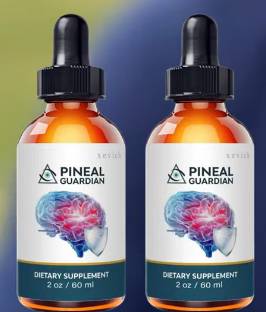
Effectiveness And Results: Does It Actually Work?
One of the biggest concerns with Pineal Guardian is that it doesn’t seem to produce any noticeable improvements in cognitive function. Many supplements marketed for brain health include ingredients like lion’s mane mushroom, omega-3s, or nootropics—but Pineal Guardian lacks these scientifically backed components.
Read More: My Thoughts on with Thorne vs. Garden of Life
1. No Noticeable Cognitive Improvement
I took the recommended dosage consistently, expecting at least a small boost in focus or memory retention. Unfortunately, I felt no difference in mental clarity, focus, or energy levels. Other users reported similar results, with many saying they noticed no changes after weeks of use.
2. Vague Claims About the Pineal Gland
The supplement claims to “support the pineal gland”, but there is no scientific evidence that a single supplement can “cleanse” or “activate” the pineal gland in any meaningful way. While melatonin production is linked to the pineal gland, this product does not contain melatonin or any well-known sleep-enhancing ingredients.
3. Potential for Side Effects
While it’s marketed as natural and safe, some users reported experiencing:
- Mild nausea
- Stomach discomfort
- Fatigue
It’s worth noting that not everyone experienced side effects, but the lack of significant benefits makes it difficult to justify taking the risk.
Ingredients And Transparency Issues
One of the biggest red flags with Pineal Guardian is the lack of transparency regarding its exact ingredient composition. Many high-quality supplements provide detailed ingredient lists with precise dosages, but Pineal Guardian only mentions a general blend of “natural ingredients.”
Without knowing how much of each active ingredient is included, it’s impossible to determine whether the formula is effective or underdosed.
How It Compares to Other Brain Supplements
To understand how Pineal Guardian stacks up against competitors, I compared it to other well-known brain-boosting supplements.
| Supplement | Key Ingredients | Effectiveness | Price |
| Pineal Guardian | Unknown herbal blend | No noticeable effects | Expensive for its results |
| Mind Lab Pro | Lion’s Mane, Rhodiola Rosea, B Vitamins | Proven cognitive benefits | Higher price, but more effective |
| Neuriva | Phosphatidylserine, Coffee Fruit Extract | Moderate results, backed by studies | More affordable |
| Onnit Alpha Brain | Bacopa Monnieri, L-Theanine, Huperzine A | Strong nootropic effects | Premium price, premium results |
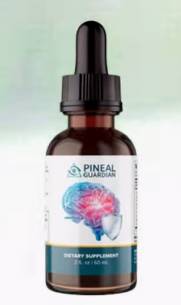
As you can see, Pineal Guardian falls short in comparison to established brain-boosting supplements. For the price, you’re better off choosing a supplement that has scientifically backed ingredients and clear benefits.
User Experience And Long-Term Use
After several weeks of use, it became clear that Pineal Guardian was not delivering on its promises. While some supplements take time to work, this one never showed any improvement in memory, focus, or mental clarity.
Even the few users who gave it 3 or 4-star reviews mostly said that they “liked the idea of it” rather than actually experiencing any real benefits.
The only positive aspect was that the liquid form was easy to take—but that alone is not enough to justify a purchase.
Pros And Cons
Pros:
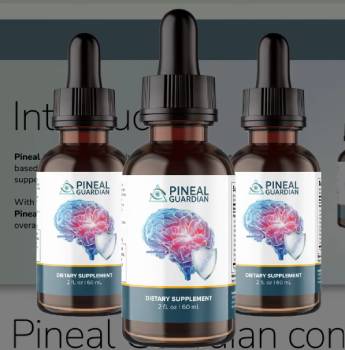
- Fast Absorption: The liquid form of the supplement allows for quicker absorption compared to capsules or tablets. This could potentially lead to faster effects, although in this case, the reviewer notes a lack of any noticeable cognitive benefits regardless of absorption speed.
- Natural Ingredients: The claim of natural ingredients without artificial additives is a positive aspect for those seeking more natural supplements. However, the vagueness of the ingredient list (see cons) makes it difficult to verify the quality and specific benefits of these “natural” ingredients.
- Easy to Use: The simple liquid format, requiring only a few drops in water, is convenient and easy to incorporate into a daily routine.
- Mild Taste: The mild, neutral taste is a plus for those who are sensitive to strong herbal flavors or dislike swallowing pills.
Cons:
- No Cognitive Benefits: The most significant con is the lack of any noticeable cognitive benefits, even after weeks of consistent use. This directly contradicts the supplement’s marketing claims and raises serious questions about its efficacy.
- Limited Scientific Backing: The claims about “detoxing” or “activating” the pineal gland lack robust scientific evidence. This raises concerns about the validity of the supplement’s purported benefits and suggests that the marketing may be based on pseudoscience rather than established research.
- Expensive for Lack of Results: Given the lack of any demonstrable benefits, the supplement is considered expensive. The reviewer suggests that there are better, more effective alternatives available at potentially similar or even lower price points.
- Vague Ingredient List: The lack of a detailed ingredient list, including the specific amounts of each ingredient, is a major concern. This lack of transparency makes it impossible to fully evaluate the supplement’s composition and potential effectiveness. It also raises concerns about quality control and potential undisclosed ingredients.
- Reported Side Effects: The fact that some customers reported experiencing nausea and stomach discomfort suggests that the supplement may cause adverse reactions in some individuals. This further emphasizes the need for caution and consultation with a healthcare professional before using the product.
Alternative Brands: Better Options For Brain Health
If you’re looking for a supplement that actually delivers cognitive benefits, there are several better alternatives on the market. Here’s how Pineal Guardian compares to other popular brain-boosting supplements:
| Supplement | Key Ingredients | Effectiveness | Price |
| Pineal Guardian | Unclear herbal blend | No noticeable effects | Expensive for the results |
| Mind Lab Pro | Lion’s Mane, Rhodiola Rosea, B Vitamins | Strong cognitive benefits | Premium but worth it |
| Neuriva | Coffee Fruit Extract, Phosphatidylserine | Moderate results | More affordable |
| Onnit Alpha Brain | Bacopa Monnieri, Huperzine A, L-Theanine | Strong nootropic effects | Higher-end pricing, but effective |
1. Mind Lab Pro
Also Read: My Thoughts on MemoForce Memory Supplement
Why It’s Better: This supplement contains clinically proven nootropic ingredients that enhance focus, memory, and mental clarity. Unlike Pineal Guardian, it clearly labels its dosages and has scientific studies to back up its claims.
2. Neuriva
Why It’s Better: Neuriva uses coffee fruit extract and phosphatidylserine, both of which are well-known for supporting brain function. It’s a more affordable option compared to Pineal Guardian and actually delivers results.
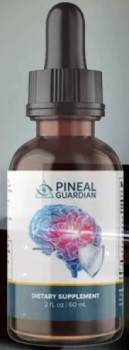
3. Onnit Alpha Brain
Why It’s Better: If you’re looking for a premium brain booster, Alpha Brain is a top-tier nootropic with ingredients that are known to improve memory and cognitive processing speed. It’s widely used by professionals, students, and athletes who need mental clarity and focus.
Final Recommendation:
If you want real brain-enhancing benefits, skip Pineal Guardian and go for Mind Lab Pro or Onnit Alpha Brain. Both have scientific backing and deliver actual cognitive improvements, unlike Pineal Guardian, which lacks transparency and effectiveness.
Frequently Asked Questions (FAQs)
Yes, some brain supplements can offer cognitive benefits, but it’s crucial to understand that not all supplements are created equal. The effectiveness of a brain supplement depends heavily on its ingredients and their scientific backing. Supplements containing the following ingredients have been studied for their potential cognitive benefits:
Lion’s Mane Mushroom: May support nerve growth factor (NGF) production, which is important for brain health and cognitive function.
Omega-3 Fatty Acids: Essential for brain structure and function, omega-3s may improve memory, focus, and mood.
Phosphatidylserine: A compound found in brain cell membranes that may enhance cognitive function, particularly memory and attention.
Rhodiola Rosea: An adaptogen herb that may reduce stress and fatigue, which can indirectly improve cognitive performance.
It’s important to note that while these ingredients have shown promise in research studies, the degree of benefit can vary, and more research is often needed. Crucially, the review points out that Pineal Guardian lacks these key ingredients, which makes it less likely to be effective compared to supplements that contain them.
There’s no scientific evidence to support the idea that a specific supplement can “cleanse” or “activate” the pineal gland. The pineal gland’s primary function is to produce melatonin, a hormone that regulates sleep-wake cycles. While the pineal gland is an important part of the endocrine system, the concept of cleansing or activating it is not supported by scientific research.
Melatonin Supplements: Melatonin supplements can be helpful for supporting the pineal gland’s natural role in sleep regulation, especially for individuals who experience jet lag, shift work sleep disorder, or other sleep disturbances.
For overall brain health, which can indirectly support pineal gland function, other beneficial supplements include:
Magnesium: Involved in various brain functions, including sleep, mood, and memory.
Vitamin D: Important for brain development and cognitive function. Many people are deficient in vitamin D, particularly in regions with limited sunlight.
Omega-3s (again): As mentioned earlier, omega-3 fatty acids are vital for brain health and may indirectly support the pineal gland’s function by promoting overall brain well-being.
Based on the reviewer’s experience and other user reviews, Pineal Guardian does not appear to provide noticeable benefits for memory or focus. This is likely due to the lack of key ingredients that have been shown to support cognitive function. If you’re seeking a brain-boosting supplement with ingredients that have more scientific backing, alternatives like Mind Lab Pro, Neuriva, or Onnit Alpha Brain might be more effective choices. However, it’s essential to research these alternatives carefully as well, as supplement efficacy can vary, and marketing claims should be viewed with skepticism.
While most users did not report serious side effects from Pineal Guardian, some experienced nausea, stomach discomfort, or fatigue. These side effects could be related to the supplement’s ingredients, particularly if an individual has sensitivities to herbal extracts. It’s always recommended to consult with a healthcare provider before starting any new supplement, especially if you have
existing health conditions, are taking other medications, or have known sensitivities. A healthcare professional can assess your individual needs and advise you on whether the supplement is appropriate for you.
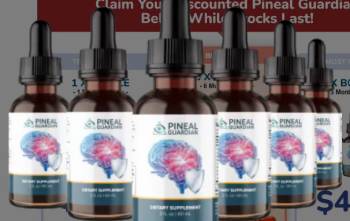
Final Thoughts: Is Pineal Guardian Worth Buying?
Reasons to Avoid It:
- No clear cognitive benefits after weeks of use.
- Lack of transparency about ingredients and dosages.
- Expensive for minimal results.
- Better alternatives available on the market.
If you’re serious about improving memory, focus, and overall brain health, I strongly recommend choosing a supplement with clinically proven ingredients. Pineal Guardian fails to deliver on its promises, making it a poor investment for anyone looking for real cognitive support.
Final Verdict: Not Recommended
While it might seem appealing for its natural ingredients and pineal gland claims, the reality is that this supplement lacks the necessary components to make any real difference. If you’re looking for a supplement to boost brain function, it’s best to explore science-backed alternatives that actually work.
